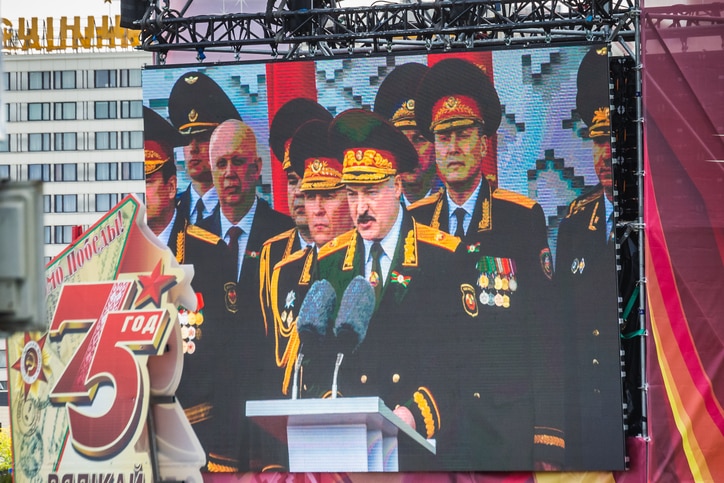Belarus held an important referendum over the weekend, with results indicating they will abandon neutrality and cement ties with Russia. Ukraine has expressed disapproval over the changes, as they came hand-in-hand with Putin’s nuclear announcement.
What was in the Referendum?
Belarus’ referendum was held over the weekend of 26th-27th of February, and citizens voted on a range of constitutional reforms. The Belarus central elections commission reported 65.2% of voters supported the new constitution – hardly a surprise, given Lukashenko’s nickname as “Europe’s last dictator.”
As a result, Belarus stands ready to desert their nuclear neutrality. President Lukashenko was already warning the West at a polling booth on the 27th: “If you [the West] transfer nuclear weapons to Poland or Lithuania, to our borders, then I will turn to Putin to return the nuclear weapons that I gave away without any conditions.”
Abandoning neutrality also promises stronger military cooperation with Russia. Just weeks ago, Russia had already deployed troops to Belarusian territory under the ruse of military exercises. Putin then sent these forces into Ukraine as part of Thursday’s invasion.
Changes under the referendum will allow Russia to store nuclear weapons on Belarusian territory once more, and Lukashenko is preparing for Belarus to join Russia in the Ukrainian invasion imminently.
As an anonymous US official put it, “it’s very clear Minsk is now an extension of the Kremlin.”
Constitutional reforms will also allow Lukashenko to extend his 27-year rule by a further 13 years to 2035; and he’ll be protected from persecution once he does eventually leave.
Lukashenko and Putin – What does Belarus Stand to Gain?
Lukashenko has long reaped rewards from the ongoing struggle between Russia and Ukraine. Peace accords signed by Russia and Ukraine in 2014 were negotiated and finalised in Minsk itself.
In 2014, the Maidan protests led to the overthrow of pro-Russian Ukrainian President Viktor Yanukovych. Kyiv then limited trade with Moscow, and Lukashenko profited by repackaging and reselling Ukrainian and Russian goods to both sides.
Lukashenko has used the economic and military merger Union State with Russia for over 20 years to milk the Kremlin for multibillion loans, trade preferences and other perks. Now, he’s looking to extend benefits even further.
Beyond monetary potential, Moscow has also propped up Lukashenko’s dictatorship for years.

In 2020, massive protests across Belarus called for the President’s resignation. Some of the demonstrations numbered over 200,000 people, and the wave of dissent became the largest and longest in the country’s history.
Moscow supported Lukashenko throughout it, even as Belarusian police detained more than 35,000 protestors and brutally beat thousands of civilians.
Still, Lukashenko’s decision to weld Belarus to Russia so dramatically could well backfire. Economically, Belarus’ economy is slowing down, and the Ukrainian market is now very likely to be lost to Belarus. It will take Belarus years to look for and develop new markets.
Politically, Lukashenko is banking on Putin’s wealth and influence to protect him from severe sanctions and diplomatic isolation – a flimsy bet. Socially, he’s playing directly into Putin’s manic plan to resurrect the Soviet Union.
Zelenskyy has not been shy in his criticism of Belarus’ decisions, recalling the Nazi invasions both countries faced as part of the USSR in WWII. “But you aren’t on the same side with us in the war that is going on now… From your territory they are killing our children, they are destroying our homes and trying to blow up everything that has been built for decades…We are your neighbours. Be Belarus, not Russia.”
Cover photo by Ang Bob on Unsplash.
Follow Maddie’s journalism journey on Twitter.
Sign Up To Our Free Newsletter